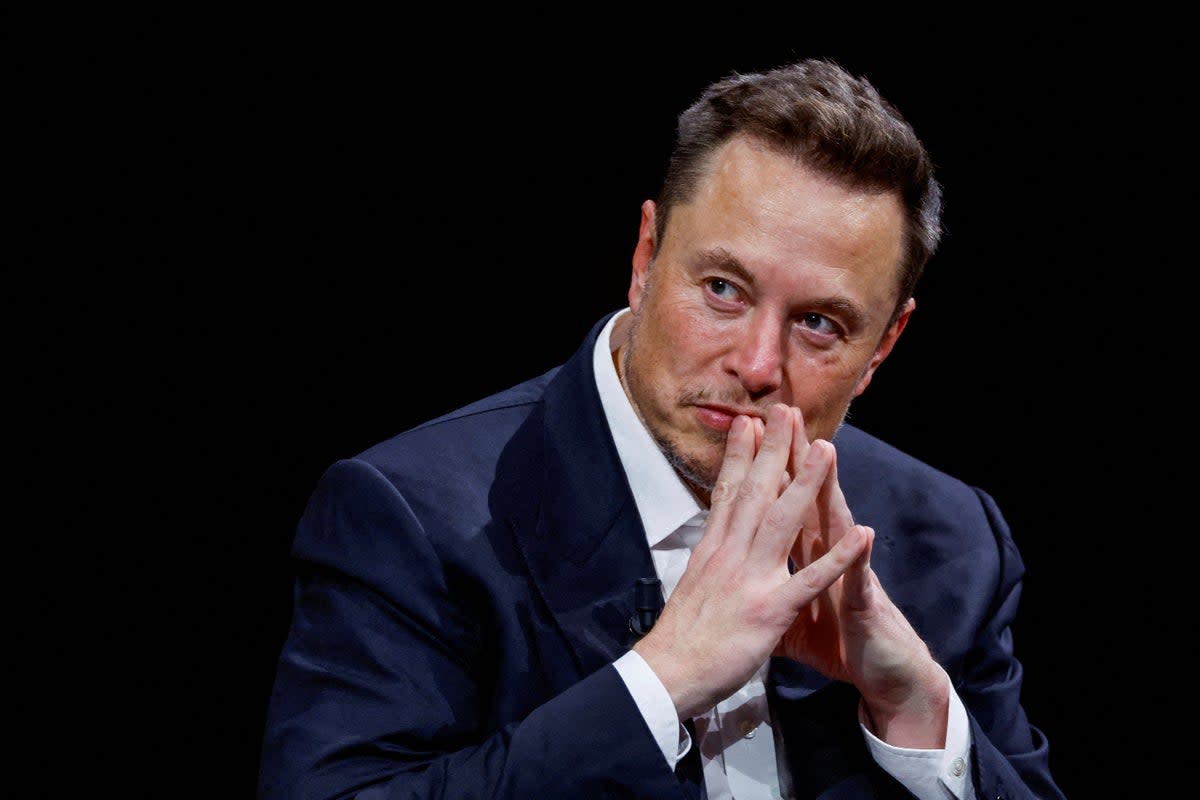Voices: Elon Musk’s fight with the ADL is as transparent as it is dangerous

Whenever anyone is accused of antisemitism, they will almost inevitably say something like, “I am not antisemitic, I love Jewish people.” By doing so, they make the conversation about their personal feelings and intentions, which are knowable only to them. By this metric, no one can ever be accused of antisemitism, since you can’t read anyone’s mind.
This is not a useful way to think about antisemitism. Antisemitism is not primarily about the internal feelings of people targeting Jewish people. Instead, antisemitism – like all bigotry – is about stereotypes, structures, and ideologies which make those targeted less safe and more subject to discrimination, harassment, and violence.
It doesn’t really matter what someone expressing antisemitism feels or intends in their heart. It matters how their actions harm and potentially even endanger Jewish people.
It’s important to keep this distinction in mind when evaluating Elon Musk’s latest campaign targeting his supposed and imagined enemies. Musk, the billionaire CEO of Twitter/X, spent the weekend blaming the Anti-Defamation League (ADL) for his business woes.
The ADL is an organization dedicated to fighting antisemitism. It has voiced concerns since Musk took over the company in late 2022 with his unwillingness to remove or moderate antisemitic content.
The ADL is hardly alone here; other outlets have reported that Musk has allowed far right accounts to spread antisemitism, popularizing anti-Jewish memes and hatred; Twitter is facing legal action in Germany for failing to take action to remove antisemitic tweets including Holocaust denial. And many people have condemned Musk for welcoming figures like Andrew Anglin, an avowed white supremacist and founder of the Daily Stormer, back to Twitter.
Some outlets have reported that Twitter’s failure to moderate hate speech is one reason for a drop in advertising. Analysts have also noted that Twitter fired key sales executives and gutted its verification features, making it easier for users to impersonate brands. A combination of these disasters, and Musk’s chaotic management, led advertisers to flee. Musk’s year-over-year ad revenue was down 59 percent as of June.
Musk is, characteristically, loathe to blame himself for his poor performance. So, he’s decided to blame the ADL. It seems he was inspired to pick the organization as a target this weekend by the same far right antisemites he has brought back to the platform and allowed to flourish.
Keith Woods, an Irish white nationalist who describes himself as a “raging antisemite” started the hashtag #BanTheADL. Woods accused the ADL of trying to force Elon Musk to remove speech (i.e, antisemitic speech) on the platform. Musk liked the tweet, and other far right users picked up the hashtag, including Christian nationalist Andrew Torba, the founder of Gab who has refused in the past to speak to Jewish journalists.
Inspired by the hashtag, Musk blamed the ADL for pressuring advertisers to drop their support. In his words, the ADL is “trying to kill this platform by falsely accusing it & me of being anti-Semitic.”
Musk insisted that he is not antisemitic. “I’m pro free speech,” he tweeted, “but against anti-Semitism of any kind.”
There’s no way to know what’s in Musk’s heart; he alone is privy to his intentions and his feelings. But there’s little doubt that his actions, in the past, and especially this weekend, have increased the power of antisemites and have increased threats to Jewish people on Twitter and off.
Musk has unbanned far right and even self-declared antisemites. His efforts to police hate speech have been, at best, ineffective. He’s actually boosted the hashtag of a self-declared antisemite targeting a Jewish organization. And his own attacks on that organization have echoed and amplified longstanding antisemitic conspiracy theories claiming that Jewish people control the media.
By claiming that the ADL’s actions alone, rather than twitter policies, are responsible for advertiser flight, Musk is suggesting a sinister Jewish-led plot to harm him and his platform. That provides a justification for backlash and anger – against the ADL, and against any other Jewish person who dares to suggest that they are being targeted by antisemitism. Musk, by boosting the far right, helps the far right build networks and power, which they can use to target the ADL, or any other Jewish person who catches their eye.
Criticisms of the ADL are not the central issue here, even when they are valid.
Similarly, and again, Musk’s personal feelings towards Jewish people, and whether he condemns antisemitism in his heart, isn’t really relevant. The issue is that Musk has joined with the far right to boost an antisemitic hashtag and target Jewish people in order to shift and deflect blame from Musk himself. That’s antisemitic, even if Musk has no hatred in his heart. And if we reach a point where we can’t say it’s antisemitic, where Jewish people are actually silenced – Musk will have won, and we will really be in trouble.

 Yahoo News
Yahoo News 
